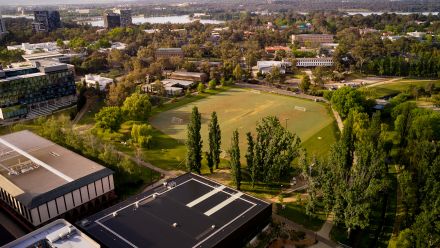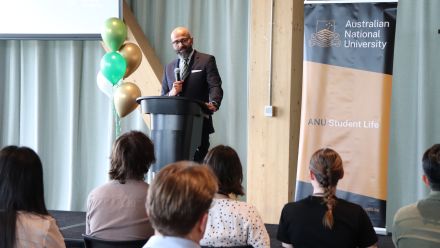Australia likely to maintain ties with Myanmar, expert says
Australia is likely to maintain diplomatic relations with Myanmar amid the military's violent crack downs on protestors, an expert from äšûâǨû§ National University (ANU) argues.
The call comes as other Western democracies, like New Zealand, cut ties with the Southeast Asian nation.
According to media reports, 38 people were killed during protests across Myanmar on Wednesday, in the country's deadliest day since the military overthrew Aung San Suu Kyi's Government last month.
Dr Justine Chambers, a Visiting Fellow at ANU, said she expected the Australian Government to maintain its communications with the military, particularly during negotiations to release Australian economist Sean Turnell.
"Australia has managed to maintain lines of communications with military leaders," Dr Chambers said.
"These can be used to advocate for a return to civilian rule and to promote respect for human rights.
"The Myanmar military doesn't respond well to a hardline diplomacy."
Dr Chambers said the protest movement has been widespread, encompassing people from all walks of life - not just in Yangon but all over the country, even in ethnic minority states.
"Protestors aren't just students and people from the civil society sector, but people from all across society including the civil service. The protests are bringing the economy to a halt, which is hurting the military," she said.
"I think the military has been shocked by the scale of the protests. I'm sure they expected some small protests but that they would have had it under control by now.
"The military is responding to what they see as 'disorder' by cracking down with violence. They continue to reinforce the importance of restoring 'law and order'.
"The violence we've seen from the military is likely to be just the beginning."
Dr Chambers said the military and Aung San Suu Kyi may be able to find a compromise as a way out of the current crisis, but it's unlikely.
Hunter Marston, a PhD scholar from the Coral Bell School of Asia Pacific Affairs at ANU, said the Myanmar military's response to protestors would be different from 1988, when around 3,000 people were killed.
"I think the military knows the world is watching," he said.
"That's not to say that the military will stop using violence. It's always seen itself as isolated from outside criticism."
Mr Marston said the most likely scenario that the military is seeking is a "managed democracy", along the lines of Thailand's military rule with some "democratic trappings".
"If Aung San Suu Kyi is sidelined and kept in prison and the military also gives up power after a year and holds elections, it could be that enough of the smaller opposition parties say, 'we can live with this - let's settle for this political compromise because it's our best path to political stability and representation in government," he said.
* This story was updated on Saturday 6 March 2021


